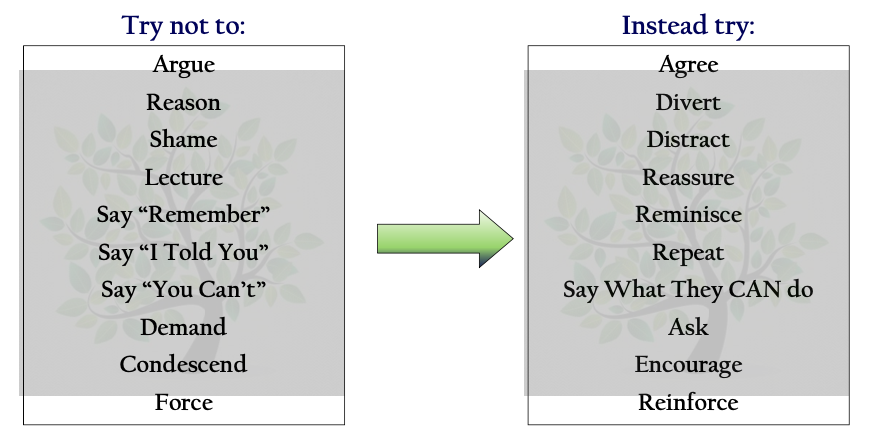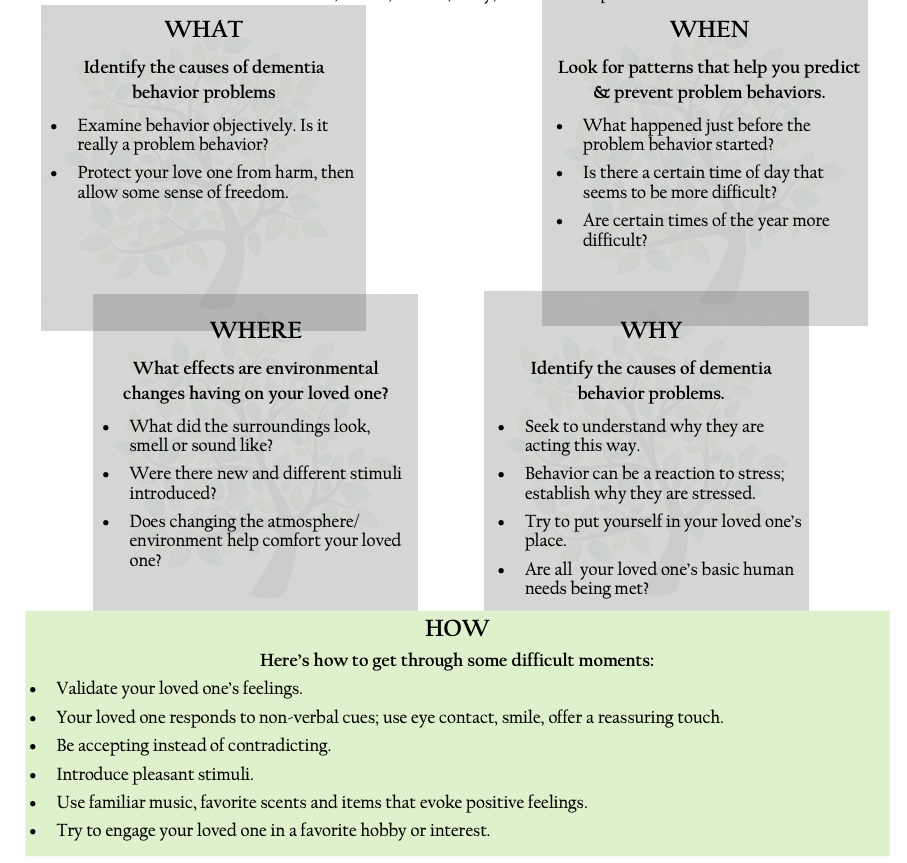Submitted by The Bellingham at Orchard, written by Jan Higman
One of the best pieces of advice I can give to you when communicating with a person living with dementia, is to always try to be in their reality in that moment in time.

I had a new resident, who had only been with us couple of days, who started asking me about his mom. He said she was sick and he was worried about her. I told him I would try and find out how she was. I called his daughter and asked her about her grandmother, who had actually passed away awhile ago, and was able to get some background information about her.
After the conversation, I went back to the resident. I did not tell him that his mother had passed; he clearly did not remember that and to tell him now would only be upsetting and make him grieve for her all over again. Instead, I told him that she was doing better and was out in her orchard picking apples. That relieved him and he told me a story about how she was always out in the orchard and all the things she would make with the apples. He walked away with a smile on his face…and so did I.
Dementia can gradually diminish a person’s ability to communicate. People living with dementia have more difficulty expressing thoughts and emotions and also have trouble understanding others.
The ability to exchange our ideas, wishes and feelings is a basic need. That’s why positive communication is so important when interacting with someone living with dementia. Here are some tips:

- Set a positive mood for interaction. Your attitude and body language communicate your feelings and thoughts more strongly than your words do.
- Get the person’s attention. Limit distractions and noise
- State your message clearly. Use simple words and sentences.
- Ask simple, answerable questions. Ask one question at a time; those with yes or no answers work best.
- Listen with your ears, eyes, and heart. Be patient in waiting for your loved one’s reply.
- Break down activities into a series of steps. This makes many tasks much more manageable.
- When the going gets tough, distract and redirect. Try changing the subject or the environment.
- Respond with affection and reassurance. Stay focused on the feelings they are demonstrating (which are real) and respond with verbal and physical expressions of comfort, support, and reassurance.
- Remember the good old days. Remembering the past is often a soothing and affirming activity.
- Maintain your sense of humor. People with dementia tend to retain their social skills and are usually delighted to laugh along with you.
Managing Difficult Behaviors
When dealing with difficult behaviors from someone with dementia, it’s important to remember that they are not deliberately being difficult. Our loved one’s sense of reality may now be different from ours, but it is still very real to him or her. As caregivers, we can’t change the person with dementia, but we can employ strategies to better accommodate any problem behaviors. These tips may help get you through some difficult moments using the “What, When, Where, Why, How” technique:








































